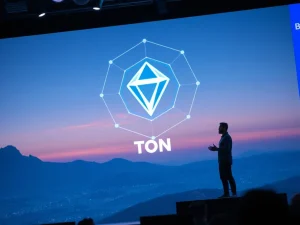Worldcoin Under Siege: Thai SEC Raids Iris Scanning Site, Sparking Urgent Regulatory Crisis for Sam Altman

For anyone tracking the evolving landscape of cryptocurrencies and cutting-edge AI projects, the latest news surrounding Worldcoin demands attention. This ambitious digital identity initiative, spearheaded by OpenAI CEO Sam Altman, faces significant challenges. Reports from Thailand indicate a major regulatory crackdown. Authorities have raided a site linked to the project’s iris scanning operations. This action immediately raises crucial questions about compliance and global expansion for Worldcoin.
Thai SEC Launches Operation Against Worldcoin
Thailand’s financial watchdogs have taken decisive action against Worldcoin. The Securities and Exchange Commission (SEC) conducted a joint operation. They partnered with the Cyber Crime Investigation Bureau (CCIB). This raid targeted an iris scanning location. Officials linked this site to “WLD exchange services.” The Thai SEC made this announcement on Friday. This marks a serious escalation in regulatory scrutiny.
The core of Worldcoin’s system involves its WLD token. This native cryptocurrency is distributed to users. Eligibility requires verification through iris scanning. These scans occur at Worldcoin’s specialized ‘orb’ locations. Data from Worldcoin itself shows a significant presence in Thailand. The platform reportedly operates 102 orb locations across the country. This widespread operation now faces direct legal challenges.
Unlicensed Operations and Legal Breaches
During their investigation, the SEC and CCIB uncovered potential legal violations. They found the WLD exchange service provider operating without a proper license. This potentially breaches local digital asset laws. Thai law requires specific authorization for such operations. Consequently, investigators arrested suspects. These individuals will face further legal proceedings. This highlights the strict regulatory environment in Thailand.
The raid underscores a critical point for global crypto projects. Local regulations vary significantly. What is permissible in one jurisdiction may be illegal elsewhere. The Thai SEC emphasized the importance of proper licensing. This ensures consumer protection and market integrity. Worldcoin’s developer, Tools for Humanity, has not yet commented publicly on the raid. This silence adds to the uncertainty surrounding the project’s future in the region.
Sam Altman’s Digital Identity Project Faces Hurdles
Sam Altman, a prominent figure in the tech world, champions Worldcoin. His vision is to create a global digital identity and financial network. However, the project has encountered numerous regulatory obstacles worldwide. Privacy concerns and data security issues often emerge. The Thai raid represents the latest in a series of global headaches for Altman’s ambitious venture. These challenges often stem from the unique nature of Worldcoin’s operations.
Worldcoin’s website outlines its distribution policy. It states that WLD token distribution occurs only where laws permit. The company also disclaims responsibility for WLD availability on third-party platforms. These include centralized or decentralized exchanges. However, regulators often focus on the point of initial distribution and verification. The Thai authorities appear to be scrutinizing these initial operations closely. This creates a complex legal landscape for Worldcoin to navigate.
- Key Concerns for Worldcoin:
- Operating without a local digital asset license.
- The legality of iris scanning for token distribution.
- Compliance with diverse international regulations.
- Data privacy implications for biometric information.
The Global Regulatory Landscape for Worldcoin
Worldcoin’s model presents novel regulatory challenges. Its use of biometric data for identity verification is unique. Furthermore, its distribution of a cryptocurrency, the WLD token, adds another layer of complexity. Regulators globally are grappling with how to classify and oversee such projects. Some countries view WLD as a security. Others may classify it differently. This lack of uniform global regulation complicates Worldcoin’s expansion plans.
The situation in Thailand reflects broader global trends. Jurisdictions are increasingly scrutinizing crypto projects. They demand adherence to local financial and data protection laws. Projects must secure proper licenses. They must also implement robust compliance frameworks. This ensures they operate within legal boundaries. Without this, they risk facing severe penalties. The incident serves as a stark reminder for all digital asset companies. They must prioritize legal compliance in every market.
Implications for Worldcoin and the Future of Digital Identity
The raid by the Thai SEC undoubtedly poses a significant setback for Worldcoin. It could impact the project’s operations in Thailand. It may also influence its strategy in other Asian markets. Furthermore, this incident highlights the ongoing tension. This tension exists between technological innovation and regulatory oversight. Projects like Worldcoin aim to redefine digital identity. Yet, they must also earn public trust and satisfy legal requirements.
The outcome of the Thai investigation will be crucial. It could set a precedent for similar projects globally. Sam Altman and his team at Tools for Humanity face a critical period. They must address these legal challenges effectively. Their response will determine Worldcoin’s trajectory. It will also influence its ability to achieve its ambitious goals. The crypto community will closely watch these developments. This case will provide valuable insights into future regulatory actions. It will also shape the adoption of biometric-linked digital assets.








